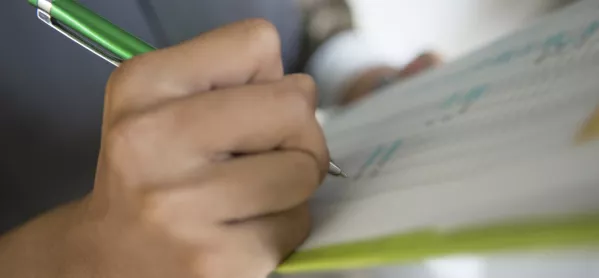Ofsted criticised over ‘inefficient’ inspections of tiny providers

Ofsted has been urged to reconsider how it monitors the performance of the smallest FE providers, after a TES analysis revealed that institutions with as few as seven learners have been subjected to full inspections in the past year.
Between September 2014 and July 2015, the regulator carried out full inspections of 24 providers with fewer than 50 learners on their books. Of these, 18 had no more than 30 students at the time of inspection; four of them had 10 or fewer.
The inspected providers included adult and community learning organisations, special colleges, employers and independent learning providers, with the majority of visits lasting at least three days.
Bodies representing smaller providers voiced concerns that full inspections of very small institutions were neither proportionate nor efficient.
Sue Pember, director of policy and external relations for the Holex network of community learning and skills providers, said that although it was important for all providers to be scrutinised to reassure learners and prevent the perception of “second-tier provision”, the regulator’s inspections should be “proportionate and risk-based”.
“If there is limited funding for Ofsted, they should be using their expertise and resources where they will have the most impact, so for bigger providers,” she added.
Paul Warner, the Association of Employment and Learning Providers’ director of employment and skills, said that carrying out full inspections of the smallest providers was not the “most common-sense way” of assessing their performance, and argued that it was an inefficient use of Ofsted’s resources.
Mr Warner acknowledged that small providers receiving public funding should be monitored, but said that they risked being scrutinised much more closely than larger colleges visited by inspectors for the same length of time.
“Ofsted needs to take into account what the impact of those inspections might be,” he said.
Providers receiving a poor rating from the regulator could face losing their contracts with the Skills Funding Agency or Education Funding Agency, he added.
“The result of those inspections is so important to contract health,” Mr Warner said. “It is just making a mockery [of the inspection process] and you are not comparing like for like.
“It does seem to be an inefficient use of resources, but I think it skews the results as well. If [Ofsted wants] to do a 100 per cent audit of everything, that’s fine, but then it needs to be the same for all providers and properly funded.”
In November, FE commissioner David Collins told TES that he believed the FE sector was “mature enough” to move on from the traditional inspection approach.
He argued for the introduction of a peer-review system similar to that used by the Quality Assurance Agency, which reviews degree-awarding bodies.
A report commissioned by the Association of Colleges, published in March, recommends a split approach to accountability, with provision for 16-19 learners monitored by a “slimmed-down” version of the inspectorate and adult education examined through a peer-review process.
“For adults, there needs to be a decisive step towards self-regulation,” the report says.
Angela Nartey, a member of the policy team at the University and College Union, said the union believed that -thorough -inspection of all providers was important, irrespective of their size, but called for more inspectors to have experience of the FE and skills sector.
A spokesman for Ofsted said that the watchdog was “charged to inspect publicly funded FE and skills providers”.
“Some of the smallest providers provide -education and training to the most vulnerable learners or train people in specialist skills,” he added.
“Those that are inadequate or require -improvement benefit from Ofsted’s support and challenge in the form of additional visits, so that they become good.”
From this month, Ofsted is introducing shorter inspections, every three years, for providers rated good in their most recent inspection.
Earlier this month, TES revealed that Ofsted had culled more than 100 FE inspector roles - a third of its workforce in the sector - as part of a move to bring all inspection staff in-house.
To read the full story, get the 28 August edition of TES on your tablet or phone, or by downloading the TES Reader app for Android or iOS.
Keep reading for just £1 per month
You've reached your limit of free articles this month. Subscribe for £1 per month for three months and get:
- Unlimited access to all Tes magazine content
- Exclusive subscriber-only stories
- Award-winning email newsletters



